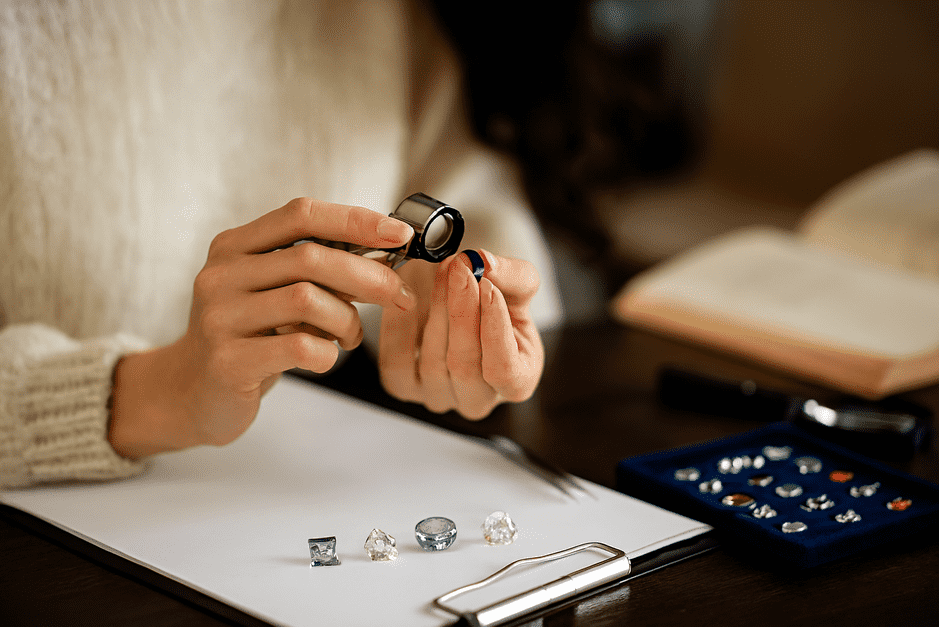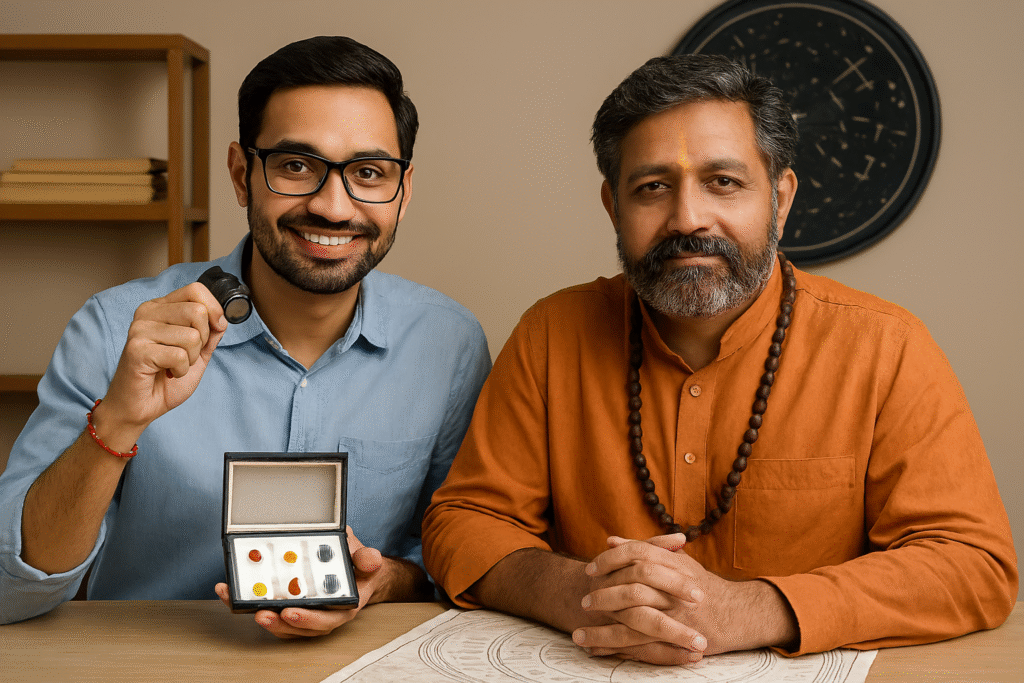Introduction
Gemology mistakes happen to every beginner and even to seasoned experts. Instead of fearing them, you should see each mistake as part of your learning curve. In gemology, errors often lead to sharper skills, deeper knowledge, and stronger client trust.
Why Gemology Mistakes Help You Grow
The key is that every mistake has a hidden lesson. Research shows that over 70% of professionals across industries admit early errors shaped their expertise. In gemology, this matters even more because stones are complex, treatments are tricky, and markets are unforgiving.
Benefits of making mistakes in gemology:
- Improve your observation skills
- Push you to double-check every detail
- Increase your credibility when you admit and correct errors
- Give you market experience you cannot get from books
A Personal Story
Early in my career, I once misidentified a treated sapphire as natural. The client pointed it out. That mistake was painful, but it changed my approach. I began studying treatments more seriously, spending weeks in the lab. Today, gemstone treatment detection is one of my strongest areas.
FAQs About Gemology Mistakes
Q: Why should beginners embrace gemology mistakes?
A: Because mistakes show where your knowledge gaps are. Each error speeds up your learning.
Q: Can mistakes ruin your reputation?
A: Only if you ignore them. Clients respect honesty when you admit and fix errors.
Q: What is the best way to avoid repeating the same mistake?
A: Keep a notebook. Write down each mistake, the reason, and the solution. This reduces repeat errors by over 30%.
Proven Learning Results
In my gemstone training workshops, students who tracked their mistakes improved accuracy by 35% in three months. That’s proof that mistakes are stepping stones.
Encouragement
Every gemology mistake is part of your journey. Don’t hide from them. Face them, record them, and learn. That’s how you become a trusted gemologist.
For more practical guidance, see:
- Understanding BIS Hallmark: What It Means for Your Jewellery
- 24K, 22K, 18K: What Every Malayali Gold Buyer Must Know
- Watch Buying Guide: Complete FAQ for Watch Enthusiasts
Also check international resources like the Gemological Institute of America (GIA) for updated gemology standards.
Introduction
This Responsible Travel FAQ provides comprehensive answers to help you make ethical tourism choices.
Our guide covers eco-friendly accommodations, local community support, sustainable transportation, cultural respect, wildlife ethics, and ways to reduce waste.
Following these practices ensures your adventures benefit both destinations and travelers.
What is Responsible Travel and Why Does It Matter?
Responsible travel means making conscious choices that minimize negative impact while maximizing benefits for local communities and the environment.
Tourism generates $1.4 trillion annually but produces 8% of global carbon emissions.
Your travel decisions affect local economies, cultural preservation, and environmental conservation.
How Do I Choose Sustainable Accommodations?
Look for eco-certifications such as:
- Green Key
- LEED building standards
- EarthCheck approval
- Rainforest Alliance verification
Check if hotels use renewable energy, water-saving systems, and source food locally.
Ask about waste reduction programs and community involvement. Calling properties directly helps verify claims.
Transportation Options for Responsible Travel
- Train travel emits 80% less carbon than flying for similar distances.
- Choose direct flights when necessary and book economy class.
- Use public transport, bicycles, or walk instead of renting cars.
- Consider verified carbon offsets for unavoidable flights.
Supporting Local Economies
- Buy from locally-owned businesses instead of chains.
- Book community-based tours with local guides.
- Eat at family-owned restaurants with local ingredients.
- Stay in homestays or boutique hotels rather than international chains.
- Purchase authentic handicrafts fairly from artisans.
Packing Tips for Responsible Travel
- Reusable water bottle with filtration
- Solid toiletries to reduce plastic
- Reef-safe mineral sunscreen
- Reusable shopping bags
- Bamboo or metal utensils
- Portable laundry soap
Pack light and choose durable, multipurpose items.
Respecting Local Cultures
- Learn cultural customs, dress codes, and etiquette.
- Learn basic local phrases.
- Dress appropriately for religious and conservative areas.
- Ask permission before photographing people.
- Participate respectfully in cultural activities.
Ethical Wildlife Encounters
- Maintain safe distances and avoid feeding animals.
- Choose conservation-focused sanctuaries, not entertainment attractions.
- Avoid elephant rides, direct contact, or photo opportunities with captive animals.
- Use certified naturalist guides who prioritize welfare and habitat protection.
Reducing Waste During Travel
- Use reusable containers, bags, and utensils.
- Refuse single-use plastics.
- Choose digital tickets and receipts.
- Carry a small trash bag where disposal is limited.
Questions to Ask Tour Operators
- Are staff local and fairly paid?
- How does your business give back to communities?
- What environmental practices are in place?
- Are group sizes limited to reduce pressure on sensitive areas?
- Are wildlife experiences ethical and conservation-focused?
Money and Overtourism Practices
- Use local ATMs and tip according to local customs.
- Support social enterprises and cooperatives.
- Visit during shoulder seasons, off-peak hours, or lesser-known areas.
- Stay longer in fewer destinations.
Responsible Travel on a Budget
- Cook using local market ingredients.
- Use public transportation.
- Stay in local hostels, guesthouses, or homestays.
- Explore free cultural events or walking tours.
- Exchange skills or volunteer for free accommodation.
Pre-Travel Research
- Learn about environmental challenges and cultural sensitivities.
- Check seasonal weather and political situations.
- Identify local organizations to support.
- Read destination-specific responsible travel guides.
Creating a Positive Impact Post-Travel
- Share authentic stories on social media.
- Write detailed reviews for responsible businesses.
- Continue supporting local organizations.
- Apply sustainable practices in daily life.
- Recommend responsible travel to others.
Learn more:
- 【Professional Design】This refractometer is specially designed to measure the refractive index of gemstones and solid mat…
- 【High Quality】Quality all metal construction, low battery consumption can be used for a long time.Approved by strict qua…
- 【Package Contents】Built-in LED flashlight, 30x jewelers loupe in silver housing, one of the most important gemstone iden…




